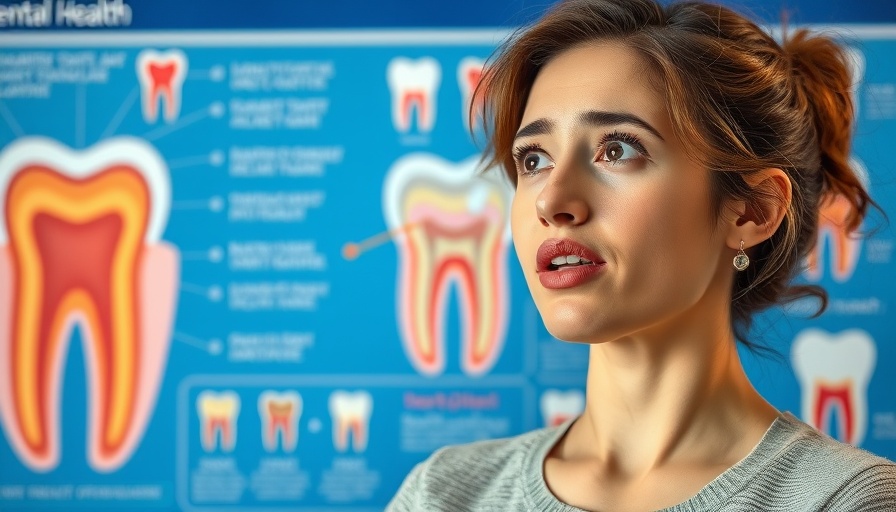
The Importance of Manual Toothbrushes in Dental Care
In an age where electric toothbrushes dominate the market, many dental health advocates still emphasize the importance of manual toothbrushes. While technology has undoubtedly improved our approach to dental hygiene, it’s crucial to recognize that the humble manual toothbrush can be equally effective when used correctly. Holding onto traditional means of brushing teeth can also provide certain benefits that suit different lifestyles and preferences.
In the video titled 'manual toothbrushes ftw #shorts,' the discussion highlights the effectiveness of manual brushing techniques, prompting us to delve deeper into this essential aspect of dental care.
Why Choose Manual Toothbrushes?
For one, manual toothbrushes are often more affordable and accessible compared to their electric counterparts. They are lightweight and convenient to carry, making them a great option for families with children—especially when ensuring kids are brushing properly can be a challenge. The straightforward design of manual toothbrushes allows for better control of pressure applied, especially for children who may be just learning to brush.
Effective Brushing Techniques
Regardless of whether one uses a manual or electric toothbrush, proper brushing technique is pivotal for effective dental care. Brushing should be done at a 45-degree angle to the gum line, utilizing gentle circular motions to effectively remove plaque and prevent gum disease. The American Dental Association recommends brushing twice a day for at least two minutes to maintain optimal oral hygiene. Incorporating a fluoride toothpaste can also enhance cavity prevention while ensuring strong, healthy enamel.
Brushing and Flossing: The Dynamic Duo
It’s not just about brushing, though. Flossing techniques shared by dental hygienists emphasize the importance of cleaning between teeth. Food particles and plaque accumulate in areas a toothbrush can’t reach, leading to cavities and gum disease. Use a gentle back-and-forth motion to place the floss between your teeth and curve it around each tooth while moving it up and down. Incorporating flossing into your daily routine alongside brushing ensures a well-rounded approach to dental care.
Maintaining Overall Oral Health
Regular dental checkups are essential, even with a diligent home care routine. Visiting your dentist for a checkup and cleaning every six months allows for the early detection of dental issues like gum disease or cavities. Your dentist can also provide personalized recommendations, whether it involves braces for staggered teeth or dental crowns and veneers for aesthetic enhancements.
Empowering Your Dental Journey
Understanding how to maintain a consistent dental hygiene routine is vital, especially in awareness of common misconceptions. Studies show that many people believe brushing alone is sufficient for good oral hygiene. However, learning more about dental products like mouthwash or specialized dental tools can enhance your overall health. Understanding the why and how behind oral care can elevate your daily practices significantly.
Navigating Dental Treatments: What You Need to Know
In some situations, dental interventions such as root canals or wisdom teeth extractions are necessary. Having knowledge about these procedures can alleviate anxiety, and promote acceptance of dental care. Knowing the options available for recovery—be it dental surgery or switching to dental implants—empowers patients to make informed choices that suit their needs.
Final Thoughts on Oral Hygiene
In conclusion, the video manual toothbrushes ftw #shorts serves as a nice reminder of the effectiveness of traditional methods when paired with proper technique. Emphasizing manual toothbrushes does not diminish the value of advancements in dental technology but rather complements them. Whether it’s through brushing, flossing, or understanding dental treatments, maintaining our dental health is an ongoing journey that deserves our attention.
 Add Row
Add Row  Add
Add 




Write A Comment